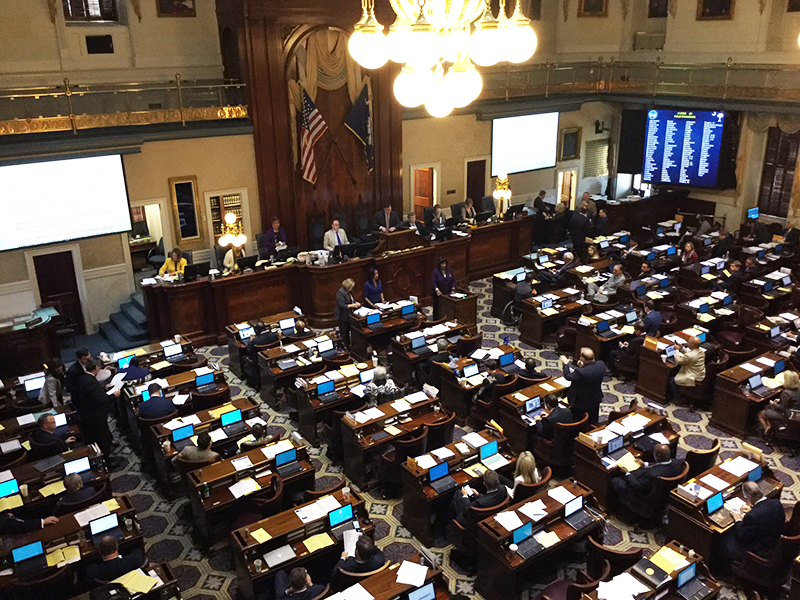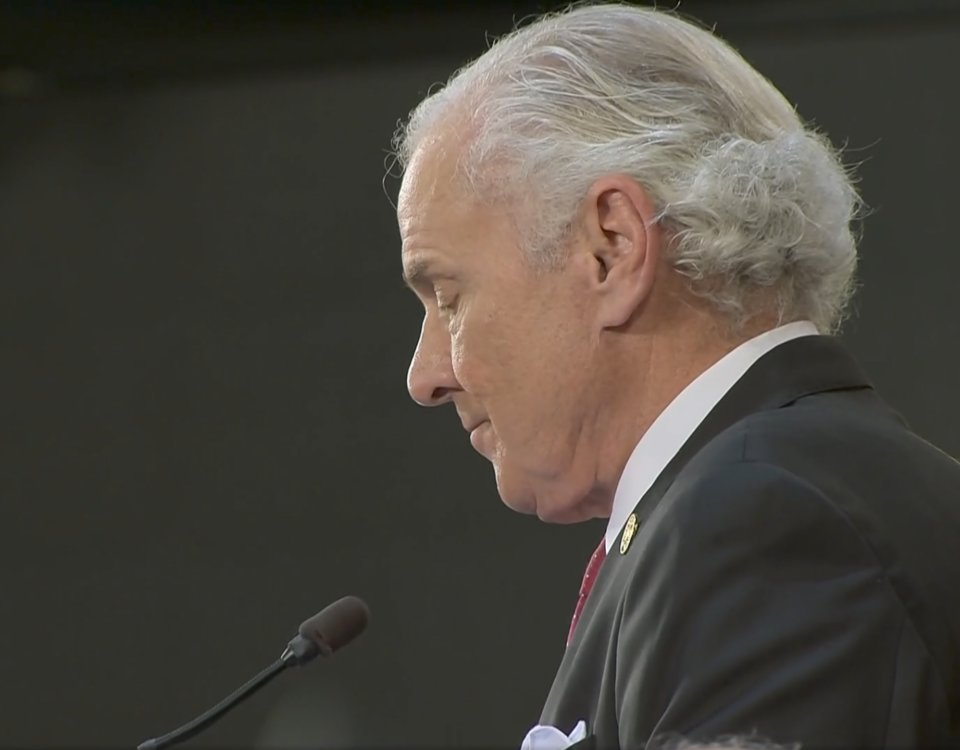
Get To Know Your Leaders: William Timmons
March 9, 2017
What Made the Cut?: Crossover Update
April 12, 2017Do Our Senators Use Our Roads?

I’ve gotten this question a lot over the past week as I talk to our Chamber Investors about the challenge the roads debate faces in the Senate. The short answer is yes, but the reason road funding bills continue to stall in the Senate is due more to the Senate’s unique rules and the politics that surround the debate.
To bring you up to speed on where the bill is…..
Two weeks ago the House overwhelmingly passed a $600 million dollar road funding package with a veto-proof majority of 97-18. The bill included a gas tax increase along with other fees and some DOT reform provisions. This week, a Senate subcommittee amended this bill to include more funding – $800 million total – indexed the gas tax, and took out the DOT reform provisions. On Tuesday, the bill will head to full committee, and the Senate is expected to begin debating it this week.
This brings us back to some of the questions I’ve received lately: “What’s up with the Senate? Why has road funding continually stalled there, even when most Senators agree it’s time to fix our roads? Have they driven on our roads? This shouldn’t be that hard, right???” Here are few reasons the Senate poses unique challenges:
- The rules in the Senate are different than the House, and any one Senator can block a bill by filibuster. Sen. Tom Davis (R-Beaufort) has filibustered any increases to the gas tax the past couple years and is prepared to do so again. The Senate can vote to sit Davis down, but it requires a two-thirds vote, which many Senators are not willing to do (because someday, it will be them filibustering a bill). Davis has argued that the DOT has sufficient funds, they’re just mismanaged by the department, and that the DOT should be a cabinet agency under the Governor. If the Senate doesn’t attach DOT reforms to the bill, the (800) million-dollar question will be… will they vote to end Davis’s filibuster?
- In the House, the majority rules and the House Republicans are frequently a united bloc; but the Senate is fractious, and Republicans usually need the help of Democrats to pass controversial bills. This is where the concepts of additional DOT reform and an off-setting tax break are really gumming up the works. There are a handful of Republicans that agree with Davis and want DOT as a cabinet agency; there are some that want additional tax breaks; and there are others that only want a gas tax increase, with no DOT reform or tax breaks (the Democrats also fall into this category). If it’s a straight gas tax bill, you lose a bunch of Republicans. If it has DOT reform, you lose some Republicans and Democrats. If it has tax breaks, you lose all the Democrats and some Republicans. It’s hard to cobble together enough votes from these factions for a majority.
- Governor McMaster’s looming veto further complicates the Senate’s factions. While the House passed their road funding bill with a veto-proof majority, even if they are able to get enough votes to pass a bill, it will be very hard to get enough to override the Governor’s veto.
While this may paint a dark picture, your action can have a significant impact on this debate. Actually, your action is the only thing that will move the needle on this debate. There are out-of-state groups with large bank accounts that are spending hundreds of thousands of dollars to make a small minority who don’t want additional road funding seem like the majority. Senators are hearing mostly from this well-funded minority.
But just by taking a few minutes to write a personal email or call your Senator, you can counteract this small, but vocal minority.
How much will it cost you to call? Five minutes of your time and an extra $60 per year in gas costs – so a little more than a dollar a week for the average driver.
How much will it cost if you don’t? According to a recent study, $1,248 in wear and tear per year on your car due to poor roads and your safety.
You’re right — this isn’t that hard, is it?



